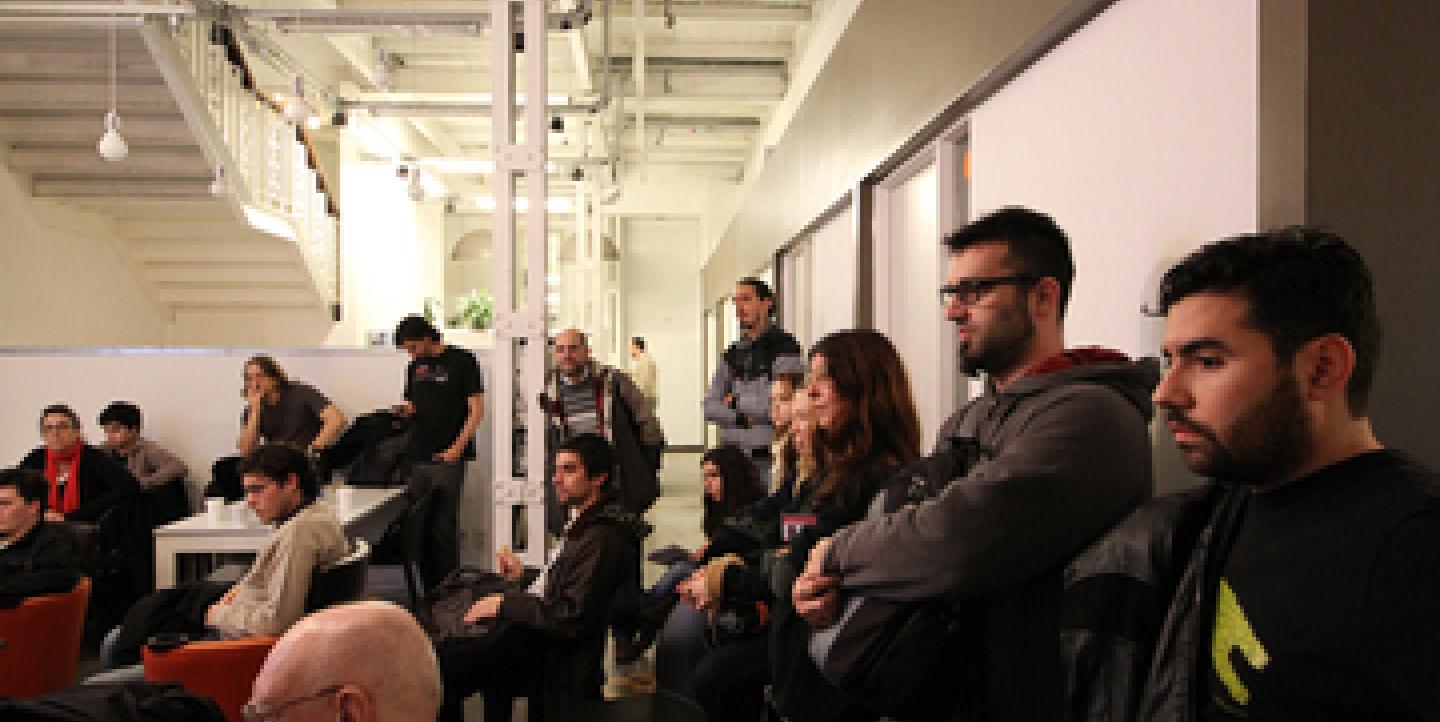A few days before holding our first Media Party in August 2012, our Hacks/Hackers Buenos Aires chapter realized we were going to need a megaphone to announce some our activities to hundreds of participants.
On Twitter, I asked for a loaner, and the crowd came through. Someone left one in the door the first day of the event, and I returned it a few months later.
The collective construction process is arduous and hazardous, but always entertaining. This year's Media Party, a three-day meeting that will take place August 29 to 31 in Buenos Aires, will bring together journalists, programmers, designers, 20 international guests, 30 workshops and a great hackathon.
Organized again by Hacks/Hackers Buenos Aires, it will be the labor of love of many of our 2,000 members. This was no accident. We built the community intentionally and through a lot of effort.
The presence of international guests such as Jacqui Maher of the New York Times, Brian Boyer of NPR, Joe Germuska of Knight Lab, Dan Sinker of Open News and Ted Han of Document Cloud lends the event gravitas and draws attendees. But the Media Party isn't just about the big names. It's an opportunity for everyone involved to join a productive community and build something valuable to drive journalism into the future. The Media Party would be impossible without scores of people contributing.
A few days ago, we held a planning meeting, where we thought through the big problems we want to help solve in the world of innovation, open data and media. From the meeting, attended by some 50 editors and reporters of Argentina's greatest media organizations, as well as members of the open data community and civic hackers, our mission for the Media Party took shape. "Now we need to solve big issues," said designer and developer Davo Galavotti.
Here are the challenges and problems we want to address:
1. Overproduction of civic engagement software
The world is full of civic engagement software that few people know about and even fewer people use. We could create an index of solutions for governments, media and civil society that are already available and that can improved or built upon. We could hold a workshop on customizing existing solutions.
2. The media and civil society often don't know what data exist
Where are the data sets for use in Latin America, and how can we connect them with OpenDataLatinoamerica to bring them to the media and civil society? What are the data sets in other world regions, and how do we get that information in front of the people who need it?
3. Great ideas and collaboration that disappear into the ether
How will we track our ideas and how can we preserve the work of our gatherings? What role can our collaborative platform HackDash play? (Read my earlier post about Hackdash here.)
4. Which tools, languages or applications do people need in order to enter the world of media innovation, data journalism and open data?
Most people are overwhelmed by the number of tools, platforms and skills. How can we help them choose?
5. How can we make sure media organizations will use what we have built?
Even the most beautiful, easy-to-use website, platform or solution is a failure if no one uses it.
6. What commercial or financial aspects do we need to consider for new, data-driven media and stories. How do we help the projects become viable?
Do people have the skills they need to lead projects and media businesses? And what new models can we learn, teach or invent?
The Media Party will give our participants from three continents the opportunity to have an impact on these challenges at the local, regional and global levels. You are invited to join us. Learn more about the Media Party here and register here.
Knight International Journalism Fellow Mariano Blejman is an editor and media entrepreneur specializing in data-driven journalism.
This post was translated from Spanish into English and edited by Jennifer Dorroh.
Global media innovation content related to the projects and partners of the ICFJ Knight International Journalism Fellows on IJNet is supported by the John S. and James L. Knight Foundation.
Photo: Hacks/Hackers Buenos Aires members, courtesy of Ramiro Chanes.

